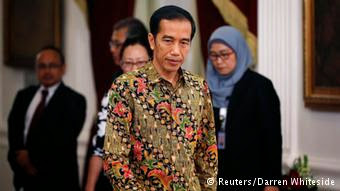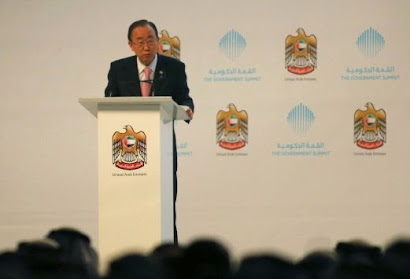 |
| Thousands of anti-LGBT demonstrators took to the streets earlier this month calling for action to prevent a lifestyle they see as immoral (AFP Photo/Sandika Fadilah Rusdani) |
Indonesian
Budi Ahmad used to live openly as a gay man without fear of becoming a target
for violence in the world's biggest Muslim-majority nation. Not any more.
The country
of 260 million is in the grip of a moral panic, with critics saying the
vulnerable LGBT minority is being used as a political punching bag in the
run-up to 2019 elections.
Hardline
rhetoric and a string of arrests have raised fears among the community.
"There
could be more persecution and we're scared that the public might become
vigilantes," said Ahmad, who agreed to speak to AFP using a pseudonym.
The
29-year-old, from a small town in the province of West Sumatra, said family and
friends in the tight-knit area have long been aware of his sexual orientation.
But he said
the public mood was turning increasingly ugly and he was now confronted with
deepening hostility.
"People
look at me wherever I go these days. Some avoid me," said Ahmad of his
non-traditional masculine image.
"Now
when I go to withdraw money from the ATM, for example, there are people staring
at me. It never used to be this bad."
Indonesia's
LGBT community has always been vilified as immoral.
But the
recent police crackdown -- including authorities hosing down a group of
transgender women in what they called a "mandatory bath" -- comes
against the backdrop of a recent lurch toward religious conservatism.
The shift,
led by increasingly powerful hardliners, has dented Indonesia's reputation for
moderate Islam.
Last week,
thousands of anti-LGBT demonstrators marched outside the capital Jakarta, as
some local politicians called for carte blanche to detain and
"rehabilitate" members of the minority.
Several
mosques in West Java were recently urged by the local government to conduct
sermons on the dangers of homosexuality.
And
Indonesia's biggest Muslim organisation -- the 80-million-member Nahdlatul
Ulama -- has called for a clampdown on same-sex relations.
'Cynical
political gain'
Concerns
have been aggravated by president Joko Widodo selecting a conservative cleric,
known for his disparaging views of the gay community and other minorities, as
his running mate for next year's elections.
A poll this
year showed nearly 90 percent of Indonesians felt "threatened" by the
LGBT community, while a 2013 Pew survey said 72 percent of Indonesian Muslims
supported replacing the secular code with Islamic law, which bans gay sex.
"(The
elections) could mean an uptick in politicians scapegoating... people for
cynical political gain," said Human Rights Watch researcher Kyle Knight.
"The
verbal threats politicians issue can quickly metastasise into physical
attacks."
Police
arrested at least 300 suspected LGBT people last year -- a record -- mostly
under an anti-pornography law as homosexuality and gay sex are legal in
Indonesia.
This month,
10 people described as "suspected lesbians" were arrested in West
Sumatra, following the detention of another eight lesbians and transgender
people in October.
"This
situation is alarming as the hateful abuses by law enforcement bodies... are
seen as a normal practice by many people," said Usman Hamid, Amnesty
International Indonesia's Executive Director.
'Eradicate LGBT'
Officials
are unfazed by the criticism.
"We're
being consistent in our efforts to eradicate LGBT (behaviour) because it's very
destructive," said West Sumatra deputy governor Nasrul Abit, adding that
thousands of people were having "deviant sex" in the region.
Parliament
is considering a move to criminalise sex outside marriage -- including gay
couples -- while the health ministry previously announced plans to release a
medical guide classifying homosexuality as a mental disorder.
The UN
human rights chief and Association of Southeast Asian Nations (ASEAN) have
criticised the proposed legal overhaul.
Authorities
have also taken aim at social media, arresting two men for links to a LGBT
community Facebook page.
Google in
January pulled one of the world's largest gay dating apps from the Indonesian
version of its online store in response to government demands.
'This is
wrong'
The latest
crackdown can be traced back to 2016 when Indonesia's higher education minister
Mohamad Nasir called for LGBT student groups to be banned from universities,
and the defence minister criticised gay and trans rights activism, Human Rights
Watch said.
Since then,
police have raided nightclubs, saunas, hair salons, hotels and even private
homes in pursuit of LGBT people.
Gay people
have been publicly flogged in Aceh under the province's Islamic legal code.
Local
police there made global headlines when they arrested a dozen transgender
people and publicly humiliated them by chopping off their long hair and forcing
them to wear men's clothes.
But there
are few hopes that Widodo or other senior officials vying for re-election will
protect a widely hated minority, said HRW researcher Andreas Harsono.
"We
need leaders who have the courage to say this is wrong."







